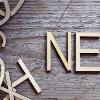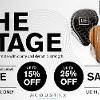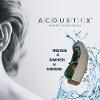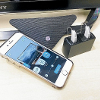A friend of mine was recently contacted for a free hearing check by a well-known retail chain. Out of interest he went along with the salesperson’s offer and went for the test. It consisted of a 10-minute consultation, without even the benefit of a sound-proof booth. He was given a hand-written piece of paper confirming that he had good hearing. This was despite him telling them that he found hearing difficult in social situations and that he had quite bad tinnitus.
In contrast, at Acoustix, you will receive a comprehensive hearing assessment. It will take around 60 to 90 minutes.
We begin with getting information from you about your concerns and hearing history.
This is followed by Otoscopy to visually examine the eardrum for inflammation, exostosis or infection.
Tympanometry then measures eardrum motion. It helps identify the origin of a hearing loss, diagnosing ear infections or tympanic perforations and looking for other middle ear abnormalities.
Acoustic Reflex Testing checks for a muscle contraction, testing the function of the hearing nerve and part of the auditory portion of the brainstem.
Pure Tone Audiometry takes place inside our sound-proof testing booth with two-way communication where mini earphones are inserted in the customer’s ear canals. A bone conductor may also be used, which is placed behind the ear and transmits sound via the skull directly to the inner ear, by-passing the middle ear.
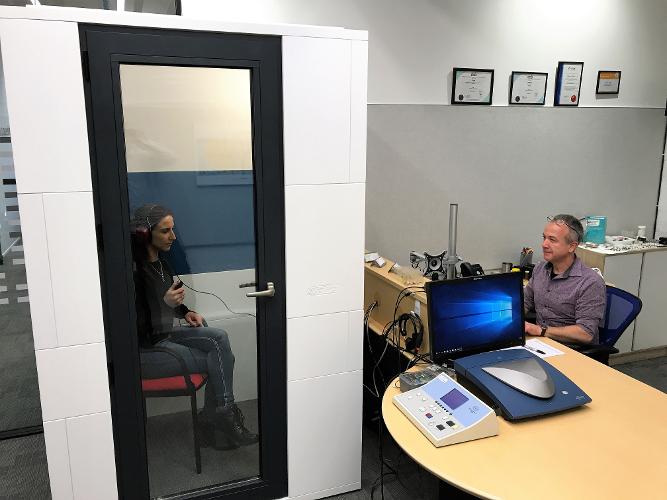
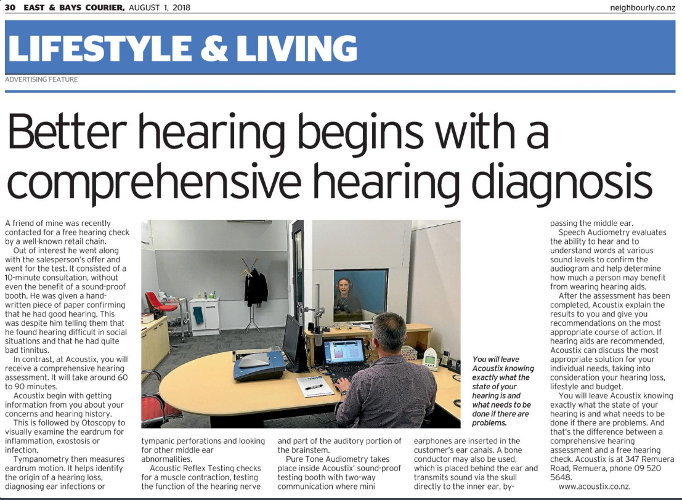
Speech Audiometry evaluates the ability to hear and to understand words at various sound levels to confirm the audiogram and help determine how much a person may benefit from wearing hearing aids.
After the assessment has been completed, we will explain the results to you and give you our recommendations on the most appropriate course of action. If hearing aids are recommended, we can discuss the most appropriate solution for your individual needs, taking into consideration your hearing loss, lifestyle and budget.
You will leave Acoustix knowing exactly what the state of your hearing is and what needs to be done if there are problems. And that’s the difference between a comprehensive hearing assessment and a free hearing check.

Thomas Müller – Chief Hearing Technologist
Thomas' key area of expertise is in the technology of rehabilitative audiology and he has a long and substantial history of providing consulting advice to various audiologists and other hearing specialists on all aspects of this area.



